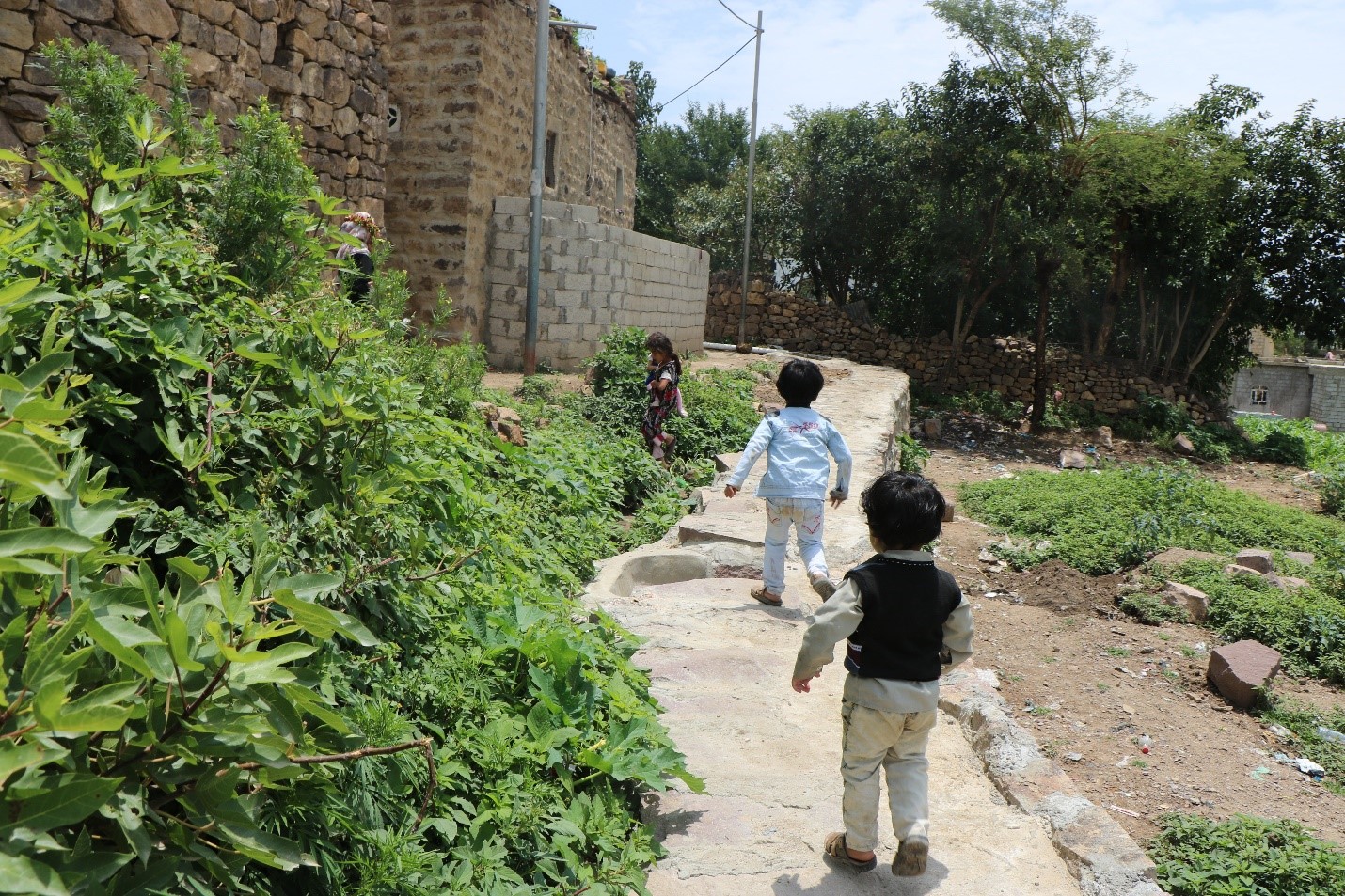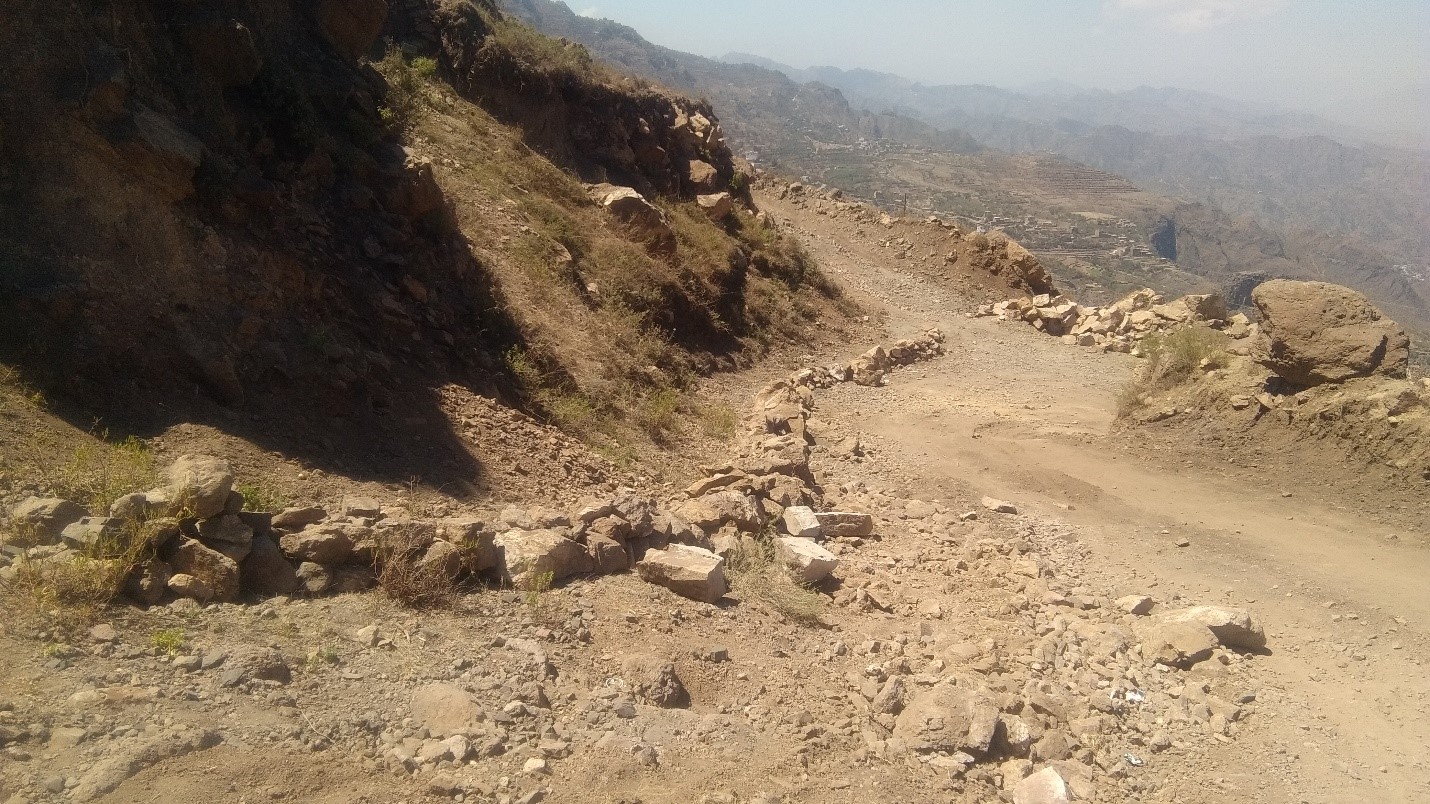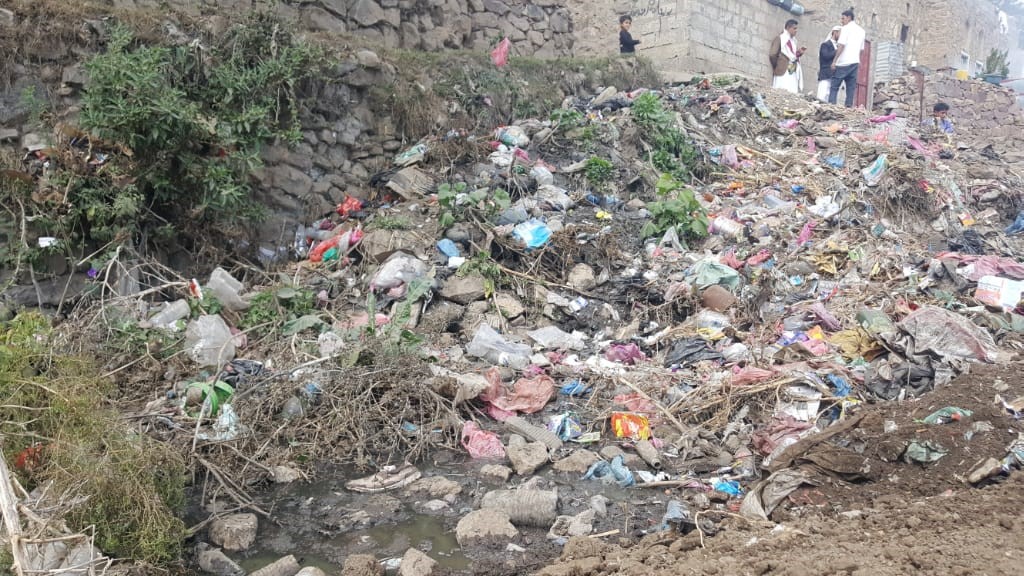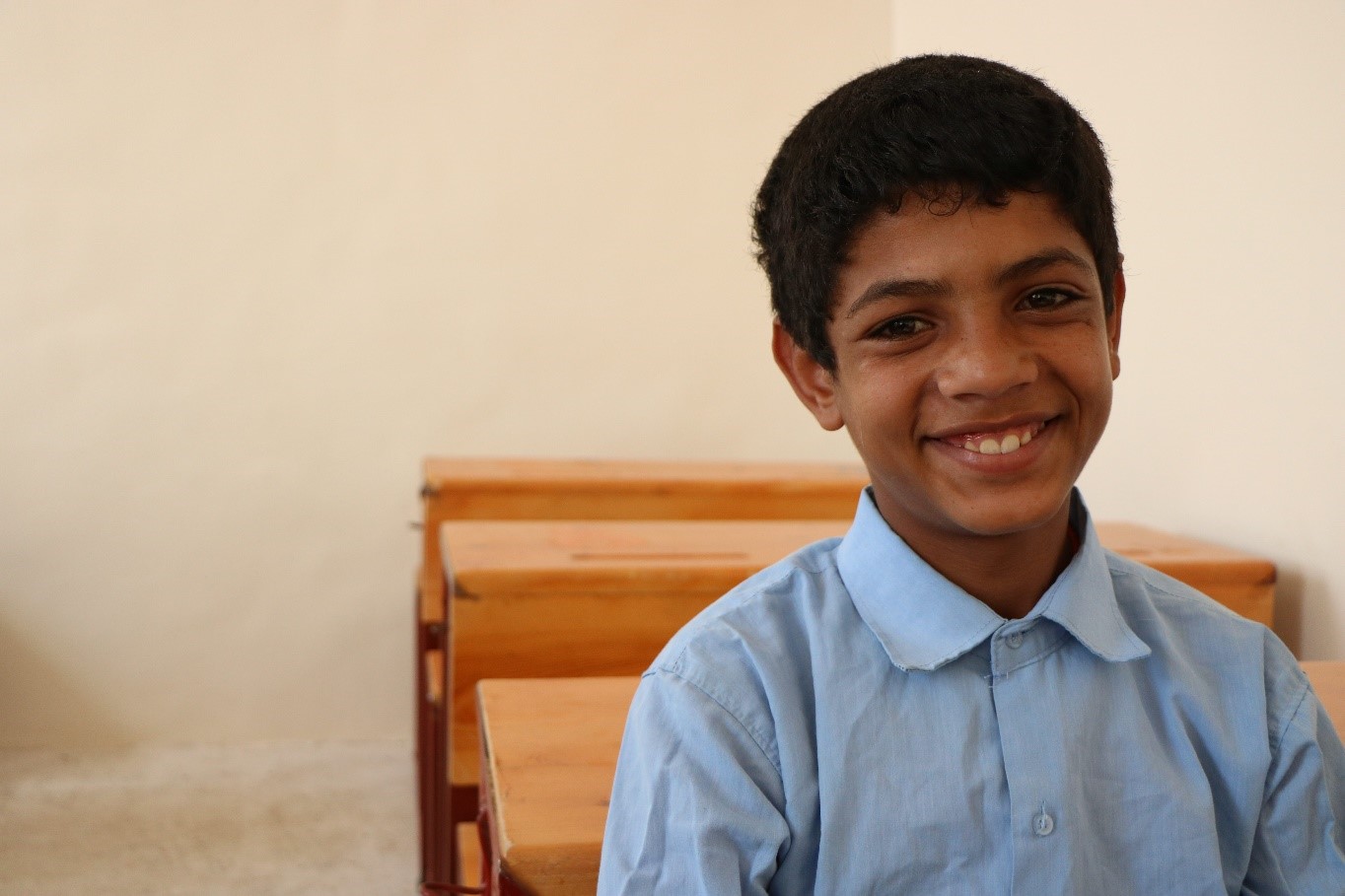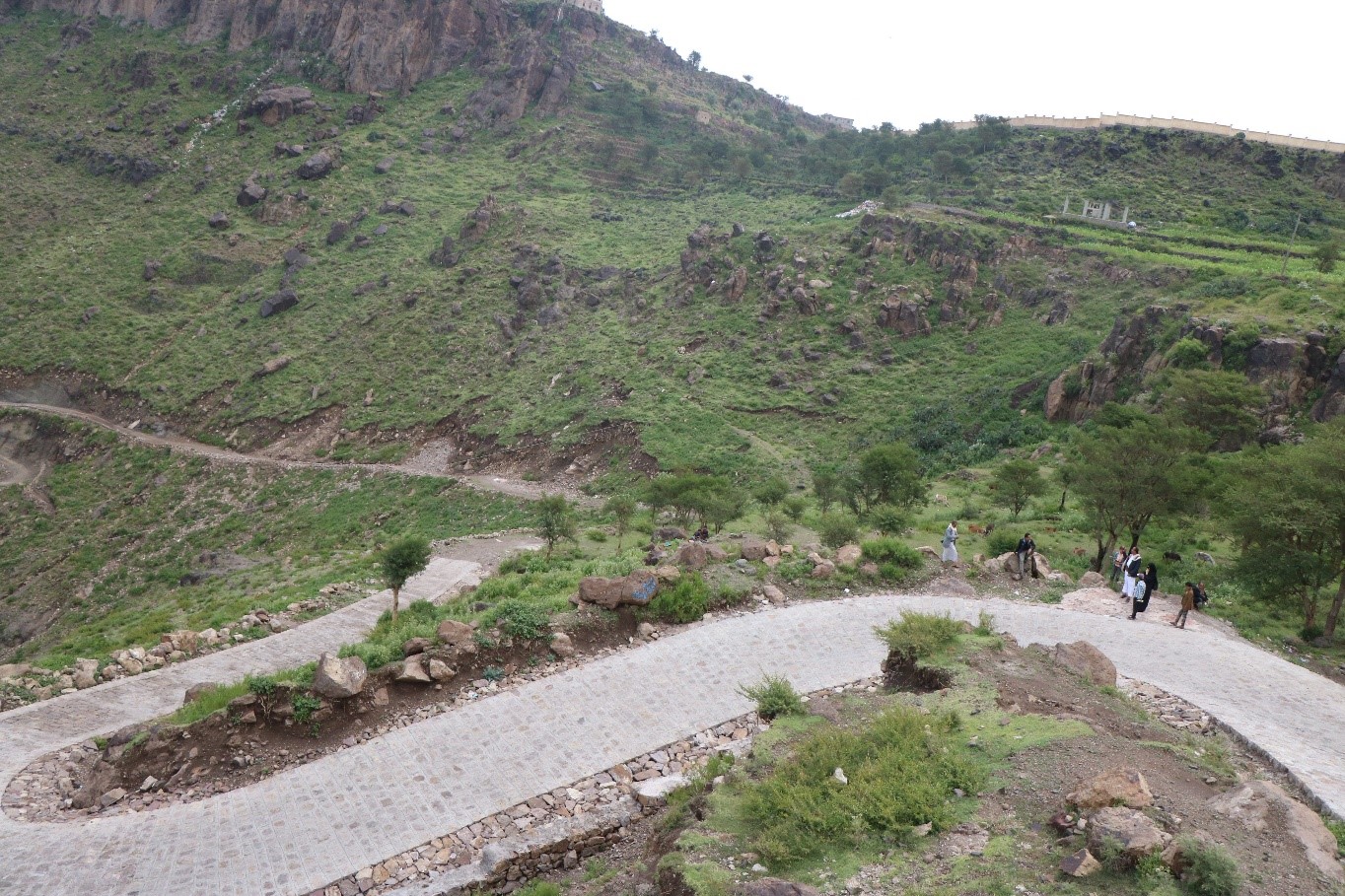Yemen is the largest humanitarian crisis in the world, and the five-year-long war has devastated the country’s development. Hubaish district of Ibb governorate is a conflict-affected area and is considered one of the poorest regions in southwestern Yemen. Like many areas in Yemen, Hubaish suffers from an acute shortage of basic services and damage to infrastructure such as roads, schools, and sewage systems.
The ruins of a school
Like many other schools across the country, classrooms in Khalid Ibn Alwaleed school, which is located in Bani Moein sub-district of Hubaish district, are often no more than cold decripit walls – no chairs, boards, doors, or windows. The wooden roof collapsed while students were in class, and they were forced to study in the open under a hot sun. During rainy days, classes were suspended. The learning environment is supposed to be safe and fun for children, but in Khalid Ibn Alwaleed school the situation was risky. Many students were injured due to the school’s poor construction.
